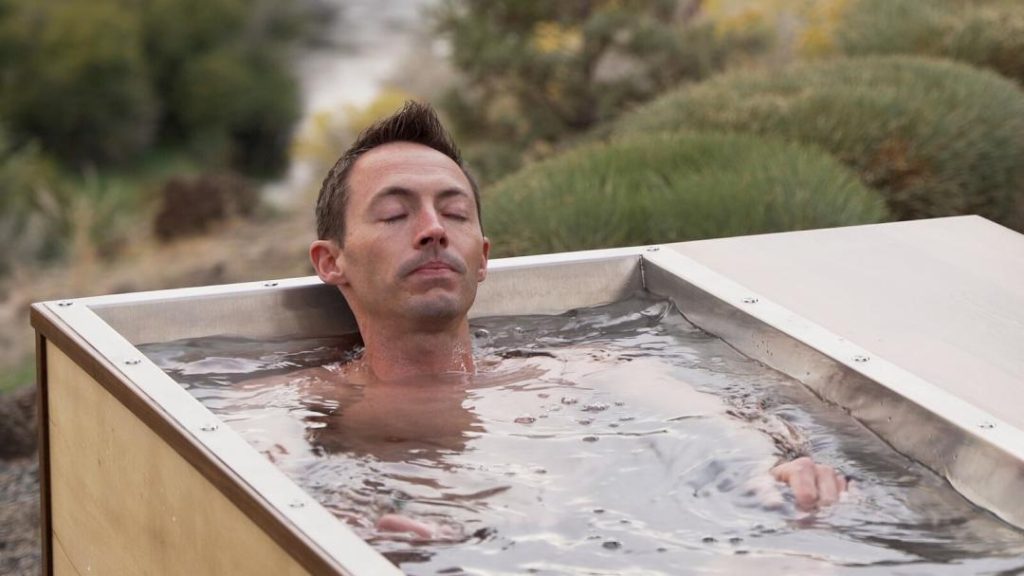
New Study Shows Cold-Water Dips May Trigger Overeating
When it comes to staying healthy and fit, many of us turn to alternative methods to boost our energy levels and improve our overall well-being. One such technique has gained popularity in recent years: cold-water immersion. Also known as cryotherapy, cold-water therapy involves submerging oneself in cold water (usually between 10-15°C) for a period of time, typically ranging from 5-30 minutes. Proponents of this practice claim it can help reduce inflammation, improve mental clarity, and even increase fat loss. But a new study published in Physiology & Behaviour has raised concerns about the potential drawbacks of this technique, specifically in regards to eating habits.
The study, which was conducted by a team of researchers at the University of Bath, found that participants who underwent 30 minutes of cold-water immersion at 16°C consumed over 30% more calories than those who simply took a warm bath or sat in a warm room. This significant increase in caloric intake has raised red flags for researchers, who are now questioning the impact of cold-water therapy on our eating habits and weight control.
So, what’s behind this sudden surge in appetite? According to the study’s lead author, Dr. Emma Stevenson, the answer lies in the effects of cold-water immersion on our core body temperature. “When you immerse yourself in cold water, your core body temperature drops significantly within a few minutes,” she explains. “This drop in temperature triggers a number of physiological responses, including an increase in hunger hormones and a decrease in fullness hormones.”
In other words, the sudden chill can trick our bodies into thinking we’re starving, prompting us to seek out more food to compensate for the perceived energy deficit. This phenomenon is often referred to as “cold-induced hyperphagia,” or increased appetite. While it may not seem like a major issue in the grand scheme of things, the cumulative effect of regular cold-water immersion could potentially lead to weight gain and other negative health outcomes.
But before we start writing off cold-water therapy as a dangerous practice altogether, it’s essential to consider the context of the study. The researchers did note that the participants who underwent cold-water immersion were not hungry or thirsty beforehand, and were simply asked to sit in the cold water for 30 minutes before being presented with a meal. In real-world scenarios, it’s unlikely that someone would be engaging in cold-water therapy on an empty stomach, which could mitigate the impact of increased appetite.
Additionally, the study’s results may not be applicable to everyone. For example, individuals with a history of eating disorders or those who are highly sensitive to temperature changes may experience different physiological responses to cold-water immersion. As such, it’s crucial for researchers to continue exploring the effects of cold-water therapy on eating habits and weight control, with a focus on individual differences and potential moderating factors.
So, what does this mean for those who regularly engage in cold-water therapy? Should they abandon their beloved practice altogether? Not necessarily. While the study’s findings do raise concerns about the potential impact on eating habits, the benefits of cold-water therapy are still numerous and well-documented. From reducing inflammation to improving mental clarity, the advantages of cold-water immersion far outweigh the potential drawbacks.
Instead, individuals who practice cold-water therapy should focus on developing healthy eating habits and maintaining a balanced diet. This might involve eating a nutritious meal or snack before engaging in cold-water therapy, or incorporating mindful eating practices to reduce the likelihood of overeating. By taking these simple steps, individuals can minimize the potential negative effects of cold-water immersion on their eating habits while still reaping the benefits of this powerful practice.
In conclusion, the recent study published in Physiology & Behaviour highlights the need for further research into the effects of cold-water therapy on eating habits and weight control. While the findings do raise concerns about the potential impact on appetite, they also underscore the importance of individual differences and context in understanding the effects of this practice. By continuing to explore the intricacies of cold-water immersion and developing healthy habits to accompany this practice, we can ensure that this powerful tool remains a valuable part of our wellness routines.
Source: https://thepfc.club/blogs/news/cold-water-immersion-how-it-affects-energy-appetite-and-eating-habits






